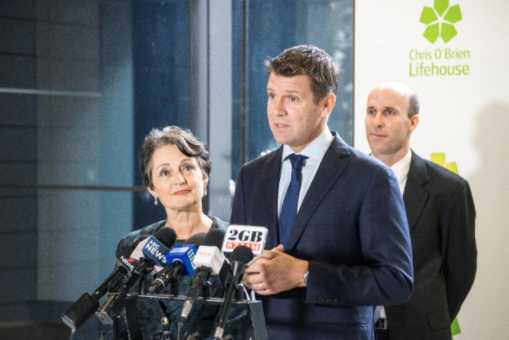The preliminary results from a NSW Government-funded world-leading trial of medicinal cannabis, sponsored by the University of Sydney, show a significant improvement in nausea and vomiting from chemotherapy.
Researchers from the University of Sydney, Chris O’Brien Lifehouse and the NHMRC Clinical Trials Centre have published preliminary results from a ground-breaking clinical trial of medicinal cannabis for cancer patients that found it could help reduce nausea and vomiting, two common and debilitating side effects of chemotherapy.
The CannabisCINV study funded by the NSW Government’s $21 million investment in exploring the therapeutic potential of medicinal cannabis, includes world-first clinical trials. The world’s largest trial of medicinal cannabis at the time it launched is a collaboration with leading NSW cancer centres.
Results published in Annals of Oncology found a significant improvement in the control of chemotherapy-induced nausea and vomiting. A quarter of the patients taking medicinal cannabis experienced no vomiting and nausea, compared to 14 percent of people who took a placebo.
“These encouraging results indicate medicinal cannabis can help improve quality of life for chemotherapy patients.
“
– Associate Professor Peter Grimison


The pilot phase of the study ran for two-and-a-half years with 81 participants enrolled. To be included in the study, patients had to have already experienced nausea and vomiting during chemotherapy despite having taken nausea prevention medication.
“Nausea and vomiting are among the most distressing and feared consequences of chemotherapy,” said chief investigator, Peter Grimison, Associate Professor at the University of Sydney School of Medicine and medical oncologist at Chris O’Brien Lifehouse.
“These encouraging results indicate medicinal cannabis can help improve quality of life for chemotherapy patients.”
Side effects such as sedation, dizziness and drowsiness were rated as moderate to severe in about one third of people using medicinal cannabis, but these are considered manageable.
“The trial will now move to a larger phase to determine with much more certainty how effective medicinal cannabis is and whether it should be considered for use in routine cancer care,” said Professor Grimison, from the Faculty of Medicine and Health.
“The next phase of the trial is ongoing and will recruit an extra 170 people.”







































